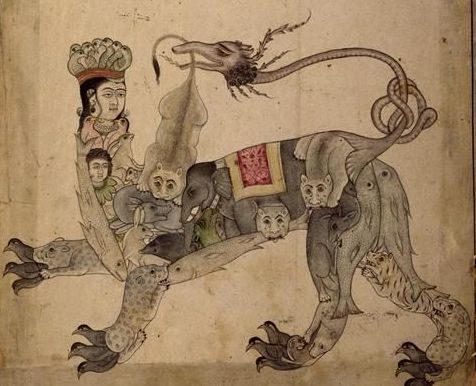It is snowing outside. I’m listening to a song. Twice in this song I’ve fallen in love. I don’t know what language the song is in. It makes no difference because I dream in one language and I fall in love in another. Last year, I changed my residence five times. Last year, on the stairs in my building, I saw a dead bird. I was afraid to bury her. Maybe the woman who cleaned the building threw the bird away, but for a whole year, I have been burying her in different countries. This is absolute egoism on my part. Burying a dead bird doesn’t affect the bird, it just saves me having to watch her decay. But why should I be afraid of decay? I, who lived through the longest war of the last century and who fell in love a few years after the dictator died, I who in later years preferred displacement to the next dictator. The fear of decay can’t be the same as the fear of death. It also does not depend on location. It more closely resembles the fear of ugliness. Burial is a matter of aesthetics. But aesthetics just opens a discussion about the necessity or non-necessity of burying the bird and does not say anything about my fear. It doesn’t mention I was afraid to touch the bird, even though I had touched several dead people. Some even died in my arms. Also sometimes I doubt whether I’m still alive. This is not strange for someone who falls asleep in one city and wakes up in another city. Perhaps I was afraid I would catch something if I touched the dead body of the bird. Maybe I was motivated by fear of the unknown and– Well, no similarity or parallel to something makes something else reasonable. The fact I was mostly not afraid to experience the unknown cannot provide a reason. Weak induction is usually dangerous. With weak induction, the mystery is lost and the poetry dies. It is therefore better for me to stop this and go back to looking outside. It is still snowing and I do not dare listen to another song.
II
We always fall in love in the language of the country most recently victorious. In the language of the victorious, we write elegies for the defeated who have not yet been buried. I don’t know why I can’t sleep at night. Last year, I worked in a restaurant at night, cleaning the toilets. Everybody left and my job started. One toilet stall was locked from the inside. With a spare key, I unlocked the stall and opened it. A drunk girl was sleeping there. I woke her up and brought her coffee. In an unknown language, she talked and cried. She was drunk and unable to understand the language of the victorious. I don’t know why, instead of the warmth of her skin or the sorrow in her eyes or the thirst of her crying, I thought about the bombardment. Who am I to consider her characteristics? Was I measuring her with myself or independently? Her body that night was without a history. So why did I have to read her into my history? Could I have wanted to conquer her or let her conquer me? Anyway, her body cannot be the subject for negotiating about the bombardment. What if, when she was drinking her coffee, I was sitting closer to her? What if I was crying too? It was dawn when both of us left by the same door. I did not dare to touch her. Her body was alive. I don’t know whether this fear came from the unknown or death. Perhaps both. But every midnight, next to the door of my toilet, my heart beat faster and there was nobody in there.
III
Your body is a bird. My love is a dead bird. What is similar about the body and the bird? Do I want to relate two fears? Which is more important– recognizing their similarity or understanding each of them? Why do I insist on seeing the two fears as equivalent to each other? Why do I borrow your body to make this comparison? Who benefits from this metaphor? A living bird does not cry for a dead bird. But why now, when it is dawn, do I occupy myself with this duality? Perhaps because nobody signed the order to bombard during the day? But many are being killed on the stairs or in the toilet. This song cries for something. Maybe for this reason, I fell in love in it. I don’t know. You haven’t heard this song. I can not know the bird’s opinion. But I understand the crying of my body. In this song, in this place on the paper, passengers are going to their offices and a girl is facing the window, is drinking her last coffee. I, in the hour of ghosts, jumped out of your sleep. My body is a dead bird.
Translated by Lyn Coffin
I
Está nevando afuera. Estoy escuchando una canción en la que me enamoré dos veces. No sé en qué idioma está la canción. No hay ninguna diferencia cuando sueño en un idioma y me enamoro en otro. El año pasado cambié de casa cinco veces. El año pasado en las escaleras de mi casa vi un pájaro muerto. Tenía miedo de enterrarlo. Tal vez quien limpió el apartamento lo lanzó fuera, pero llevo un año enterrándolo en diferentes países. Es un egoísmo absoluto. No le afecta que lo entierren, sólo me salva de ver la decadencia. Pero ¿por qué he de temer la decadencia? Yo, que viví la guerra más larga del siglo pasado y que, pocos años después de un dictador, me enamoré, en estos pocos años he preferido desmarcarme del próximo dictador. El miedo a la decadencia no puede ser lo mismo que el miedo a la muerte. Tampoco depende de la ubicación. Es más parecido al miedo a la fealdad. El entierro es un asunto estético, pero éste sólo abre el debate sobre la necesidad o no de enterrar a los pájaros y no dice nada acerca de mi miedo. No dicen que tuve miedo de tocar el pájaro. He tocado muchos muertos. También en mis brazos alguien murió. Incluso a veces dudo de si estoy vivo. No es extraño cuando te duermes en una ciudad y te despiertas en otra. Tal vez tuve miedo de que algo del cuerpo del pájaro me atrapara. Una especie de miedo a lo desconocido y, bueno, no es posible usar una similitud o una duplicación para hacer algo razonable. Este hecho de que yo, en general, no tuviera miedo de la experiencia a lo desconocido no puede proveer de razón alguna. Generalmente, la inducción débil es peligrosa. Con la inducción débil el misterio se pierde y la poesía muere. Por lo tanto, es mejor que vuelva y mire fuera de la ventana. Todavía está nevando y no me atrevo a escuchar otra canción.
II
Siempre nos enamoramos en el idioma del último vencedor. En el idioma de los vencedores escribimos elegías para aquellos vencidos que aún no han sido enterrados. No sé por qué no puedo dormir por las noches. El año pasado, por las noches, estuve trabajando en un restaurante, limpiando los baños. Todo el mundo se había ido y empecé a trabajar. Un baño estaba cerrado por dentro. Lo abrí con la llave auxiliar. Una muchacha estaba durmiendo allí, borracha. La desperté y traje café para ella. En un idioma desconocido habló, lloró. En su estado de embriaguez no entendía el idioma de los vencedores. No sé por qué en lugar de pensar en el calor de su piel, en la tristeza de sus ojos, en la sed de su llanto, pienso en el bombardeo. ¿Cómo comprendo estas características? ¿La he medido conmigo mismo o por ella misma? Su cuerpo, esa noche, estaba sin historia. Así que, ¿por qué tengo que leerla en mi historia? ¿Tal vez quiero conquistarla o hacer que ella me conquiste? De cualquier modo, su cuerpo no puede ser asunto de negociación en el bombardeo. ¿Qué habría pasado si mientras bebía su café me hubiera sentado cerca de ella? ¿Qué habría pasado si hubiese llorado yo también? Amanecía cuando ambos nos marchamos por la misma puerta. No me atreví a tocarla. Su cuerpo estaba vivo. No sé… este miedo venía de lo desconocido o de la muerte, tal vez de ambas cosas. Pero cada medianoche, junto a la puerta del baño, mi corazón latía más rápido y allí no había nadie.
III
Tu cuerpo es un pájaro. Mi amor es un pájaro muerto. ¿Qué similitud existe entre cuerpo y pájaro? ¿Quiero relacionar dos miedos? ¿Qué es más importante: reconocer esta similitud o comprender aquellos dos miedos? ¿Por qué insisto en ver aquellos dos miedos equivalentes entre sí y pido prestado tu cuerpo en esta comparación? ¿Quién se beneficia de esta metáfora? Un pájaro vivo no llora por un pájaro muerto. Pero ¿por qué ahora, cuando está amaneciendo me entrego a esta dualidad? ¿Tal vez porque nadie firma la orden de bombardeo durante el día? Sin embargo, durante las noches muchos están siendo asesinados en la escalera o en el baño. Esta canción llora por algo. Tal vez por esta razón me enamoro en ella. No lo sé. No has escuchado esta canción. No puedo conocer la opinión del pájaro. Pero entiendo este grito en mi cuerpo. En esta canción, justo en este lugar de la página, los pasajeros están yendo a sus oficinas y una muchacha frente a la ventana, supongo, está bebiendo su último café. Yo, a la hora de los fantasmas, salté fuera de tu sueño. Mi cuerpo es un pájaro muerto.
Traducción de Manuel Bigorri y Manuel Llinas

